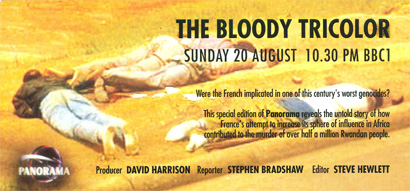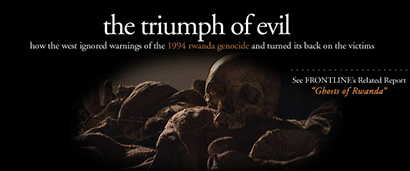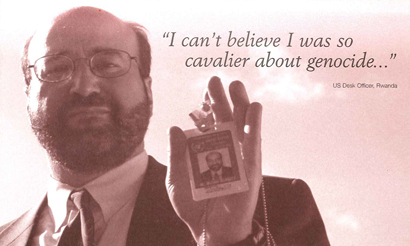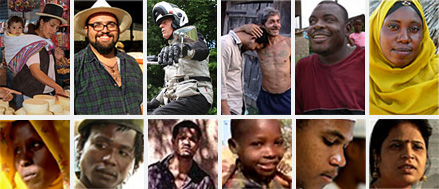Beginnings
His first TV work was as presenter of What's On in the South-East, a regional round-up of entertainment and culture news on BBC 1 in the 70s.
Newsweek & Newsnight
In 1980 Steve became a presenter of BBC 2's weekly analysis programme Newsweek. His programmes covered Cold War politics, youth unemployment, the NHS (Health Care for All - 12.02.82) the rise of monetarism, the unions (The Right Balance - 27.11.1981) Spain after the failed Neo-Fascist coups (1.3.79 and 1981) and other global and UK issues.
He was also a reporter on BBC 1's People and Power (1983), revealing the extent of unrecorded MP's private interests and the influence of lobby firms.
Steve had previously been briefly among the first reporters on BBC 2's Newsnight, filming undercover to confront a top alleged drug-dealer in the King's Cross red light district - one of the first uses of miniature undercover cameras in TV.
Steve returned to Newsnight in 1983, covering the miners' strike, Cruise missiles, Mrs Gandhi's assassination, and more bizarrely a whole programme on the truth behind "spontaneous human combustion". Later undercover filming (1983) revealed the extent of the novel crime of software piracy.
1984 a Newsnight film from Upper Volta (now Burkina Faso) showed how famine could be caused by mismanaged foreign aid, politics and even journalism. In 1985 he followed up pioneering work on MPs' interests with further revelations about MPs voting without declaring links to companies involved - leading to calls for a compulsory new register of MPs' interests. He also took former PM Edward Heath on a filmed tour of the economically troubled North East.
In 1986 he investigated the invention of royal pageantry for a film on Prince Andrew's wedding - including an interview with Tony Armstrong Jones.
 Other scoops included uncovering the secret "Myron Report" which aimed to socially engineer Britain's coalfields to defeat the Left, and doubts by industry insiders about the safety of pressure vessels in nuclear reactors (1987).
Other scoops included uncovering the secret "Myron Report" which aimed to socially engineer Britain's coalfields to defeat the Left, and doubts by industry insiders about the safety of pressure vessels in nuclear reactors (1987).
Panorama
As TV correspondent, Steve also made around 50 films for the primetime Panorama series - the BBC's current affairs showcase.
His Panorama on trade union power (1982) made front page headlines - a scoop interview in which former PM Jim Callaghan claimed it might be legitimate to break the law over labour rights. Killing or Caring (1981) investigated the RSPCA's animal welfare priorities. Steve returned to Panorama in 1987 and was a fulltime correspondent for 20 years.
Adrift in Space (1987) investigated the collapse of the UK space industry while Selling the Nuclear Dream (1987) reported safety fears on the privatization of nuclear power. Arthur Scargill Evermore (1988) profiled the miners' strike leader. Children in Need (1989) showed kids in Glasgow surviving partly on stale bread dished out by supermarkets - the film was condemned by Mrs Thatcher for casting a bad light on supermarkets. In 1989 Is There No Alternative? had analysed the chances of a viable opposition to Thatcherism.
He made three of the earliest films about the politics of global warming - Death in the Rainforest (1989) based around the murder of Brazilian activit Chico Mendes, The Big Heat (1990) and The South Strikes Back (1992).
In 1992 Steve reported on the BBC's prospects in a digital world in Why Pay for Auntie which included a sequence of him being barred from filming in his own office by private security guards.
The Cancer Lottery (1991) uncovered statistics showing the UK's poor cancer survival rates, and disclosed that some cancer doctors were unaware of the latest research. The government later set up an inquiry and appointed a national cancer director.


Bad Medicine (1992) revealed the ease with which poor surgery could escape attention. Dentists Revolt (1991) had looked at overworked dentists.
Showdown on the Mersey (1990) about Liverpool's militant council filmed two sets of council workers dividing estate litter while a third waited in the wings. On narcotics crime Crack Crisis - Is Britain Next (1989( revealed links between US gangs and the UK�s emerging crack scene. Report from Needle Paradise (1994) revealing the extent of drug abuse on a Leeds estate won the show's highest ratings for 8 years (6.9 million). West Yorks' Keith Hellawell became the first Chief Constable to openly contemplate - while not approving of - cannabis legalisation and what some users saw as the "positive" effects of drugs.





In Fair Cops (1993) three senior chief constables admitted that within their own lifetimes police had used physical intimidation, planting of evidence and fabrication of notes to secure evidence (while not doing anything illegal or improper themselves). The film predicted the massive use of CCTV - partly as a substitute for policy testimony.




In Drug Crime (1997) Steve spent a week in a West Yorks custody suite - showing frontline evidence that 70% of crimes were linked to drugs. An investigation into multiple drug deaths in Blyth - Kill or Cure (1997) - said by local officials to be due to heroin ODs - revealed that legally prescibed methadone - often illegally traded - was the unreported common factor. Cannabis from the Chemist (2001) looked at the chances of cannabis legalisation through medicinal use with exclusive film of UK trials.
Men Aren't Working (1995) showed how young men in one Yorkshire town were losing out to girls both at school and in the job market. In 1996 a two-part series called Broken Promises and Private Future looked at the fractured dreams of the UK's Welfare State.
On education, Bunking Off (1990) revealed alarming statistics about truancy; Class Wars (1991) investigated the truth about "progressive" teacher training colleges - would-be teachers expressing surprise they were not actually being taught to teach.
Getting Away with Murder (1993) identified and filmed undercover the organizers of a rape camp in Foca, Bosnia; American officials accused the British of "obstructionism" over war crimes. The film included an exclusive grilling of former President Slobodan Milosevic - his first foreign broadcast interview for 18 months - about war crimes in the former Yugoslavia.
An Ordinary Boy (1993) followed IRA bomb victim Tim Parry's parents as they journeyed through Northern Ireland trying to understand his death.
 A Culture of Murder (1994) reported the immediate aftermath of the Rwandan genocide including the "refugee" camps in Goma. A later BBC 1 special - The Bloody Tricolor (1995)- investigated past French complicity with the genocidal regime in Rwanda, using secret documents found in the regime's archives in Kigali. The multiple award-winning When Good Men Do Nothing (in the USA The Triumph Of Evil) produced by Mike Robinson investigated the West's Do Nothing strategy in the Rwanda genocide.
A Culture of Murder (1994) reported the immediate aftermath of the Rwandan genocide including the "refugee" camps in Goma. A later BBC 1 special - The Bloody Tricolor (1995)- investigated past French complicity with the genocidal regime in Rwanda, using secret documents found in the regime's archives in Kigali. The multiple award-winning When Good Men Do Nothing (in the USA The Triumph Of Evil) produced by Mike Robinson investigated the West's Do Nothing strategy in the Rwanda genocide.


Steve filmed with aspirant PM Tony Blair for an entire day as they drove around Southampton (perhaps the longest interview with a top politician ever recorded) - Blair's Britain (1994). Later Steve revealed the tricks of the "spin doctors" trade (Have They Got News For You - 1996), attacked at length by Blair spin doctor Alistair Campbell in the Sunday Times while it was still being shot. In 2006 Tony Blair's Long Goodbye recorded the dying throes of the Blair government from inside the Palace of Westminster.
Football, Safe in their Hands? (1989) showed the dire conditions at many football grounds after the Hillsborough disaster. The Money Game (1997) investigated the role of money in football and the World Cup including Steve wandering onto the pitch in Rio seconds after the opening whistle - the match abandoned because one side had refused to turn up - and doorstepping Brazilian football boss Ricardo Teixeira.
In 1991 Steve's report In the Eye of the Storm was part of a BBC 3 part series on Operation Desert Storm. The Case Against War (2003) was the only network TV documentary to present the case against war before the Iraq invasion. The War Party (2003) followed the actual outbreak of war through the eyes of leading Neocons in Washington. A Warning from Hollywood revealed how Hollywood had been more prophetic about the future of warfare than the Pentagon (the 9/11 Report later revealed the Hamburg Cell had been shown Hollywood hijack films during their training). Steve had previously examined the changing nature of conflict in Pulp Future (1995) - Rio drug lords, Mad Max gangsters in Sierra Leone, illegal migration into Europe. The film looked at the chances of a BladeRunner future of "modernity without progress, science without civilization, growth without security."


Migrant Mafia (1997) followed the trial of gang-run illegal migrants from India to Europe.
Sex and the Holy City (2003) revealed a Vatican-backed campaign alleging condoms leak HIV. The late Cardinal Trujillo famously asserting that condoms have tiny holes big enough for the virus to pass through.
 A follow-up - Can Condoms Kill (2004) - showed that scientists whose work the Vatican was citing did not back its claims. Steve also made two films in conjunction with UK charity Comic Relief - reporting on unfair trade practices across the world in Ready, Steady, Trade (2003) and The Dollar a Day Dress (2005) with filming in Ghana, Kenya, Peru, USA, Haiti and Cambodia.
A follow-up - Can Condoms Kill (2004) - showed that scientists whose work the Vatican was citing did not back its claims. Steve also made two films in conjunction with UK charity Comic Relief - reporting on unfair trade practices across the world in Ready, Steady, Trade (2003) and The Dollar a Day Dress (2005) with filming in Ghana, Kenya, Peru, USA, Haiti and Cambodia.
 In 2002 Steve's Panorama royalty investigations began with Queen Camilla (2002). Lawful Impediment (2005) revealed doubts about the legality of the marriage of Prince Charles after Steve's discovery of forgotten - or overlooked - documents in the National Archive - the Attorney General suggested emergency legislation might be needed. A follow-up - A Right Royal Shambles (2005) - showed further chaos over the royal marriage.
In 2002 Steve's Panorama royalty investigations began with Queen Camilla (2002). Lawful Impediment (2005) revealed doubts about the legality of the marriage of Prince Charles after Steve's discovery of forgotten - or overlooked - documents in the National Archive - the Attorney General suggested emergency legislation might be needed. A follow-up - A Right Royal Shambles (2005) - showed further chaos over the royal marriage.
 Dead Mums Don't Cry (2005) - about the work of doctors in Chad and Honduras - has been shown globally as a classic film on maternal mortality. Its protagonist Grace Kodindo was invited to address the UN on the MDGs, and concerned British sympathizers began a charity to help mothers in Chad.
Dead Mums Don't Cry (2005) - about the work of doctors in Chad and Honduras - has been shown globally as a classic film on maternal mortality. Its protagonist Grace Kodindo was invited to address the UN on the MDGs, and concerned British sympathizers began a charity to help mothers in Chad.
At the height of the boom Winner Takes All Britain (2004) showed how the top 1% were earning - and spending stratospheric wealth. The High Price of Gas (2006) warned of the UK's potential dependence of the gas pipeline to Russia. Labour's Foreign Criminal Crisis (2006) showed immigration officials breaking ranks to reveal the impossibility of rapidly deporting many criminals
On BBC 2 Correspondent - From Pakistan to Park Lane (via Ilford) (1999) investigated allegations of corruption among the ruling elite in Pakistan with Steve filmed paying a cheque into the secret account of a top politician's family. The allegations were to resurface at the time of the Panama Papers controversy in 2016.
In Australia Steve's shows have been seen on ABC's Four Corners and Foreign Correspondent and Cutting Edge (SBS).
In 2008 Steve reported Crime Scene Conman, a BBC 1 documentary, narrated and co-directed/produced The Real Life on Mars, a BBC 4 documentary, and helped develop BBC 4's President Hollywood.
Life/TVE
 In 2000 Steve Bradshaw and Jenny Richards began Television for the Environment's Life series on BBC World - a documentary series about the human impact of globalization. There have been over 100 editions. The first series included contributions from writers including Naomi Klein, Noam Chomsky, Francis Fukuyama, Amartya Sen, JK Galbraith and others. Steve wrote, produced and directed films including The Posse (Brazil) and The Philadelphia Story (USA). He also contributed to a special series called City Life (2001) and another on the MDGs (2005). Steve and Jenny re-launched the series with TVE in 2008 as Life on the Edge, with Steve as presenter and series editor. A second series followed in 2009, along with the 3-part Early Life on Early Childhood Development. Steve also directed the first in the series - The Mayor's Dream set in Peru, USA and Turkey. The third series of Life on the Edge was broadcast on BBC World in 2010.
In 2000 Steve Bradshaw and Jenny Richards began Television for the Environment's Life series on BBC World - a documentary series about the human impact of globalization. There have been over 100 editions. The first series included contributions from writers including Naomi Klein, Noam Chomsky, Francis Fukuyama, Amartya Sen, JK Galbraith and others. Steve wrote, produced and directed films including The Posse (Brazil) and The Philadelphia Story (USA). He also contributed to a special series called City Life (2001) and another on the MDGs (2005). Steve and Jenny re-launched the series with TVE in 2008 as Life on the Edge, with Steve as presenter and series editor. A second series followed in 2009, along with the 3-part Early Life on Early Childhood Development. Steve also directed the first in the series - The Mayor's Dream set in Peru, USA and Turkey. The third series of Life on the Edge was broadcast on BBC World in 2010.

In 2009 Steve series edited and directed two series of one-minute vignettes for TVE - Future Thinkers (BBC World) and Climate Thinkers (BBC World) - and 7+1, a short film on women's empowerment for the Turkish charity ACEV. These were timed for the World Economic Forum, Copenhagen climate summit, and IMF/World Bank Istanbul meetings. In 2010 Steve reported and directed Dangers in the Dust, a documentary for BBC World in collaboration with TVE and the ICIJ.
A second series followed in 2009, along with the 3-part Early Life on Early Childhood Development. Steve also directed the first in the series - The Mayor's Dream set in Peru, USA and Turkey. The third series of Life on the Edge was broadcast on BBC World in 2010.
In 2010 and 2012 Steve was executive producer for two BBC World documentaries in the prizewinning ICIJ investigative series on overfishing Looting the Seas (2010 and 2012). In 2011 Steve reported and directed the two part series In the Mayor's Footsteps - filmed in Peru and Brazil - which reported on Early Child Development for BBC World and TVE.
Steve's next project as series editor was Future Food (2012), a six part UNFPA-funded documentary series for global distribution on how the world will feed itself in the 21st century.
In 2013 Steve was series editor for Al Jazeera's five Life Apps documentaries, also a TVE-produced series.
Dreamt up by Steve, Kenyan film-maker Toni Kamau and colleagues, Life Apps challenged software techies in Africa, Asia and Latin America to develop mobile phone apps to help the impoverished and promote social change.
@SteveBradJourno
@AnthropTheMovie
@EveTheBriard